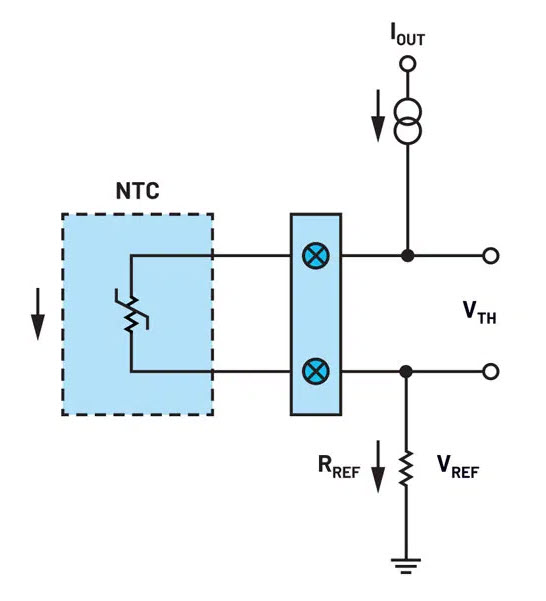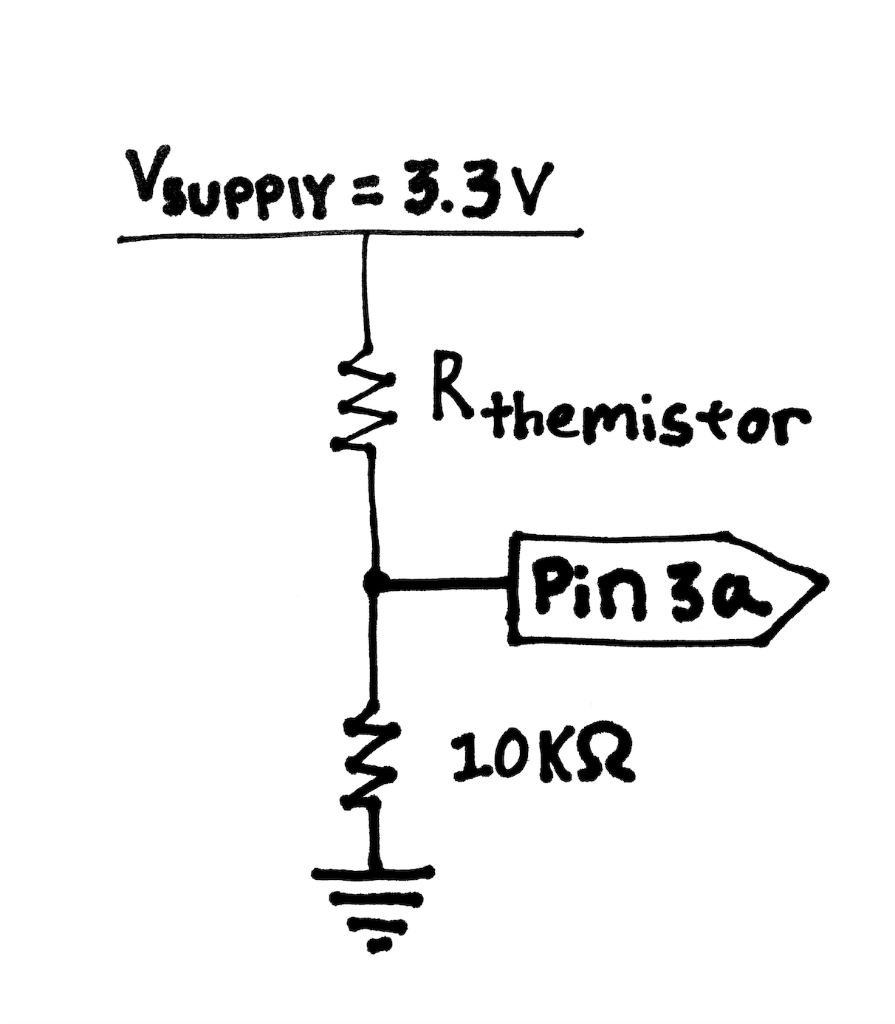Based Temperature Sensing System Explained Circuit Diagram
BlogBased Temperature Sensing System Explained Circuit Diagram A Basic Thermistor Circuit. Let's build a basic thermistor circuit to see how it works, so you can apply it to other projects later. Since the thermistor is a variable resistor, we'll need to measure the resistance before we can calculate the temperature. However, the Arduino can't measure resistance directly, it can only measure voltage.

This circuit acquires a 12-bit level of precision across a ±25°C temperature range typically, with the nominal temperature of the thermistor at the R 25 value. USB based temperature monitor The signal path in the circuit solution starts with the low-cost, 4.7 kΩ thermistor followed by Analog Devices' low-cost ADuC7023 microcontroller.

Thermistor-Based Temperature Sensing Circuit Diagram
Sensors, Thermocouples, RTD Circuits and Thermistors A complete listing of products offered by Microchip Technology Inc. and their corresponding data sheets can be found at www.microchip.com. Precision Temperature Measurement with Silicon IC Sensors, Thermocouples, RTDs and Thermistors 6 Temperature Sensors Design Guide Temperature Sensors

Design Description This temperature sensing circuit uses a resistor in series with a negative-temperature-coefficient (NTC) thermistor to form a voltage divider, which has the effect of producing an output voltage that is linear over temperature. The circuit uses an op amp in a non-inverting configuration with inverting reference to Temperature sensing with PTC thermistor is chosen based on the temperature range and the PTC's value. 2. Operate within the linear output voltage swing (See A OL specification) to minimize non-linearity errors. 3. The reference voltage, Vref, can be created Step-by-step circuit design of common op amp building block circuits. TI Designs

PDF How to Design Temperature sensing with PTC thermistor circuit Circuit Diagram
This circuit is very sensitive to heat since we connected two transistors as a Darlington pair. Other than that we have used an LED along with a current limiting resistor, a variable resistor, and a thermistor. Thermistors are used to limit the passage of current through them according to the temperature. Figure 3. The current excitation of a thermistor. Another option is to set the gain but use a dynamic excitation current. So, as the signal level from the thermistor changes, the excitation current value is changed dynamically so that the voltage generated across the thermistor is within the electronics' specified input range.
